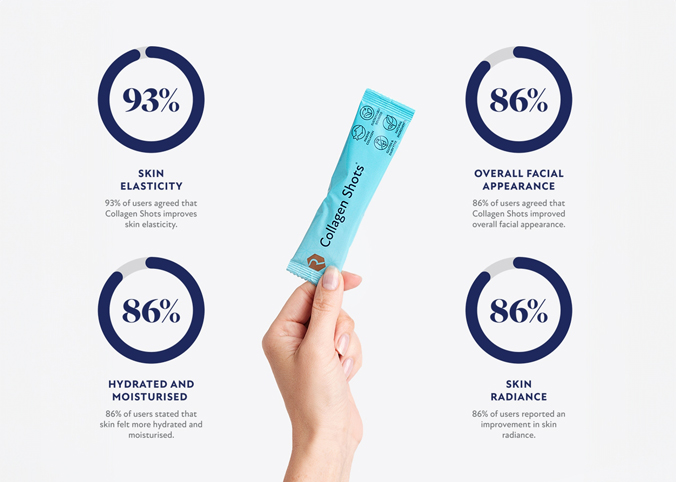What is perimenopause

Pretty much everybody knows what menopause is, thanks to thousands of women bringing it into the limelight and discussing it openly. By knowing what to expect, we can prepare and manage the natural changes in our bodies as we get older.
However, we wanted to bring to the foreground something just as important as menopause, but not talked about so often: perimenopause.
What is perimenopause?
Perimenopause means ‘around menopause’ and refers to the time leading up to our periods stopping completely, at which point menopause kicks in. During this time, our bodies produce less oestrogen and progesterone, which has different effects on women.
Some women won’t experience any symptoms at all, while others may really struggle throughout the process. If that’s the case for you, there are things you can do to limit the symptoms and be as comfortable as possible in the years leading up to menopause.
At what age does perimenopause begin?
There isn’t a precise age where perimenopause kicks in; however, most women will start to experience symptoms in their mid-forties, although it may start earlier than that.
How many years does perimenopause last?
Perimenopause can last anywhere from several months to a decade. However, it typically lasts around four years. During this time and menopause, you will experience changes in your body.
The symptoms are a direct result of the lower production of oestrogen and progesterone. Once you’ve stopped menstruating for twelve consecutive months, perimenopause is considered to be over, and menopause to have begun.
How perimenopause affects your body
There are numerous perimenopause symptoms, many of which you’ve probably heard attributed to menopause. These are a result of a decline in hormone production from your ovaries.
One of the most common perimenopause symptoms, experienced by 75% of women, are hot flashes. These can occur both day and night, and many women also experience night sweats.
Some women also experience mood swings, muscle and joint pain, and menstrual cycles often become irregular; some may be light while others are extremely heavy. Other perimenopause symptoms include:
- Anxiety
- Brain fog
- Dry mouth and eyes
- Hair becoming less full
- Headaches
- Increased hair growth on different areas of the body, face and neck.
- Insomnia
- Reduced bone mass
- Reduced concentration
- Reduced muscle mass
- Reduction in collagen and dry skin
- Tender breasts
- Urinary infections
- Vaginal dryness
- Weight gain
The symptoms can look quite daunting, but there are steps you can take and small changes you can make to lessen the impact and feel more in control of perimenopause.
How to manage perimenopause symptoms
We’ve highlighted some simple lifestyle changes that can make all the difference as you journey through perimenopause. Of course if your symptoms are particularly bothersome, we recommend speaking to your doctor, as it is important to discuss your specific problems with a medical practitioner. They may suggest that you should take HRT (Hormone replacement therapy
1) Change your diet
This is an excellent option, particularly if you’re suffering from hot flashes. We recommend avoiding spicy food and alcohol as these tend to relax the muscular walls of our blood vessels, leading to them widening. This is referred to medically as Vasodilation and can trigger hot flashes.
If you’re in the midst of a hot flash, opt for a cold drink and use a fan to help keep your body cool (portable hand-held fans are a fantastic option for when you’re out and about).
Many women find that declining oestrogen levels lead to weight gain, particularly around the midriff. So, we also recommend sticking to a healthy and balanced diet as much as possible to ensure you maintain a weight you’re comfortable with.
2) Speak to your doctor about medication
While periods may be disrupted during perimenopause, it’s important to know that you can still get pregnant and that protection is vital if you aren’t planning to start a family.
If you aren’t trying to get pregnant, it may be worth discussing the contraceptive pill with your doctor, as there are benefits regarding perimenopause. The Harvard Health website states that a low-dose birth control pill can help to regulate your cycle and balance the hormone unpredictability many women experience during this time.
The pill can also relieve vaginal dryness, helping you to continue enjoying a healthy sex life (you can also invest in a vaginal moisturiser if you don’t want to take the pill).
Other benefits include preventing bone loss, staving off hot flashes and helping to protect against ovarian and endometrial cancers.
We highly recommend setting up an appointment with your doctor if you’re interested in taking a contraceptive pill to lessen the impact of perimenopause on your daily life.
3) Take supplements
Insomnia or sleep disturbances can wreak havoc on our mood, making getting through the day extremely difficult and trying to rest in the evenings incredibly frustrating.
Female Hormone Support has been carefully crafted to nurture women through the perimenopause and menopause years. It contains specially selected botanicals to bring harmony to hormonal fluctuations and alleviate, hot flashes, mood swings and night sweats.
In addition to setting up a sleep plan to help your circadian rhythm balance (resulting in a better night sleep), you could take our H3O Night Repair supplement. This supplement will work away while you slumber and help you wake up feeling refreshed and ready to take on the day.
Collagen Shots are a liquid drink that helps replace collagen lost naturally as we get older. Many women suffer from dry skin caused by a lack of collagen during perimenopause, so boosting your levels naturally with a supplement can help your skin feel plumper, better hydrated and much more. We also have a vegetarian collagen supplement available.
If you’re struggling with weight gain due to perimenopause, our Re-set supplement could help, thanks to the active ingredients and herbs.
Why don't you check out our dedicated collection of perimenopause relief supplements and pick the right supplement for you.
4) Think about your wardrobe
This goes back to the hot flashes symptom. Light layers will be your friend as you can take some off when in the throes of a hot flash and put them back on when it subsides. Many women often feel hot and damp after a hot flash, and wrapping back up again will help.
Perimenopause is a natural change to our bodies as we get older. The more we embrace it and make tiny changes to limit the symptoms, the better our experiences will be.






